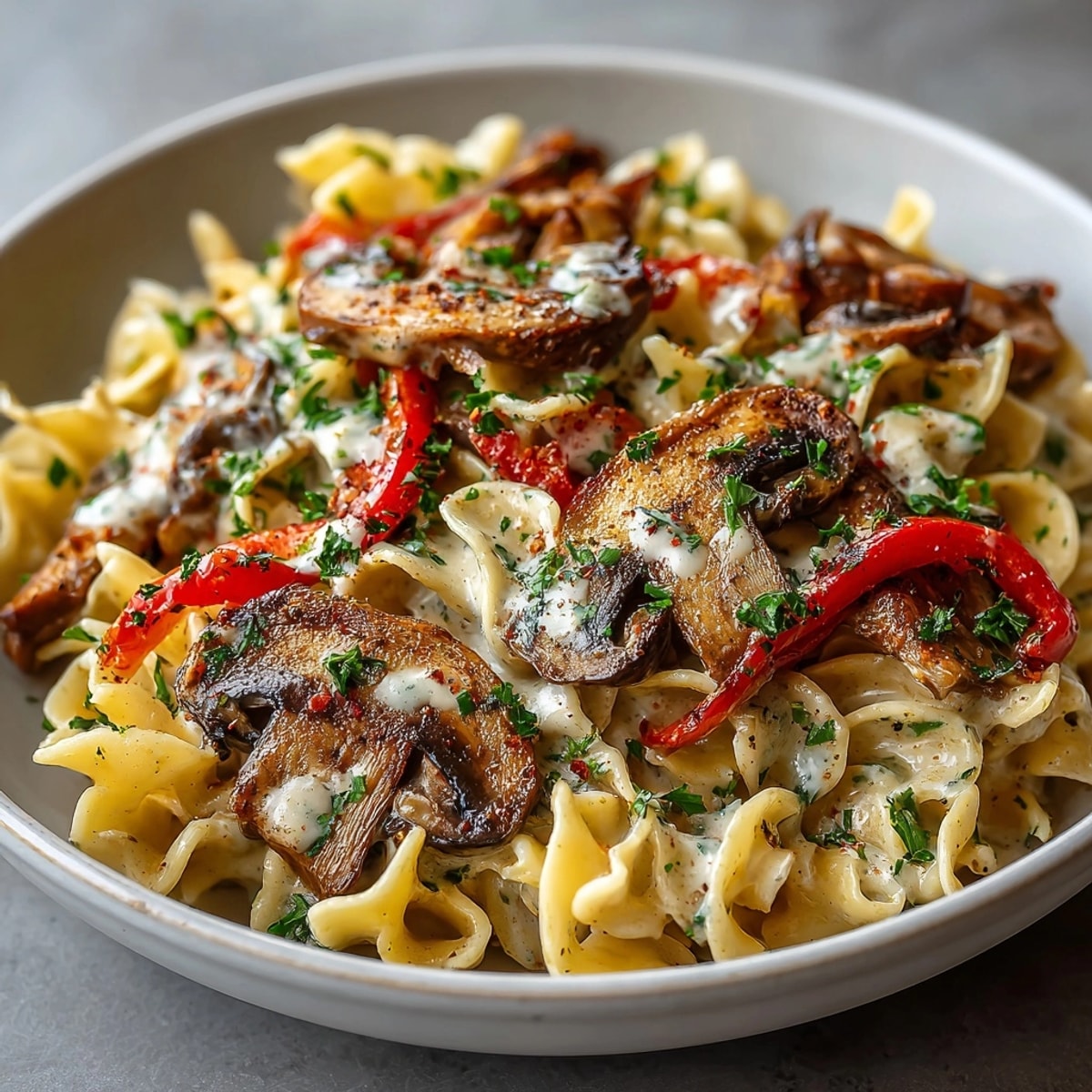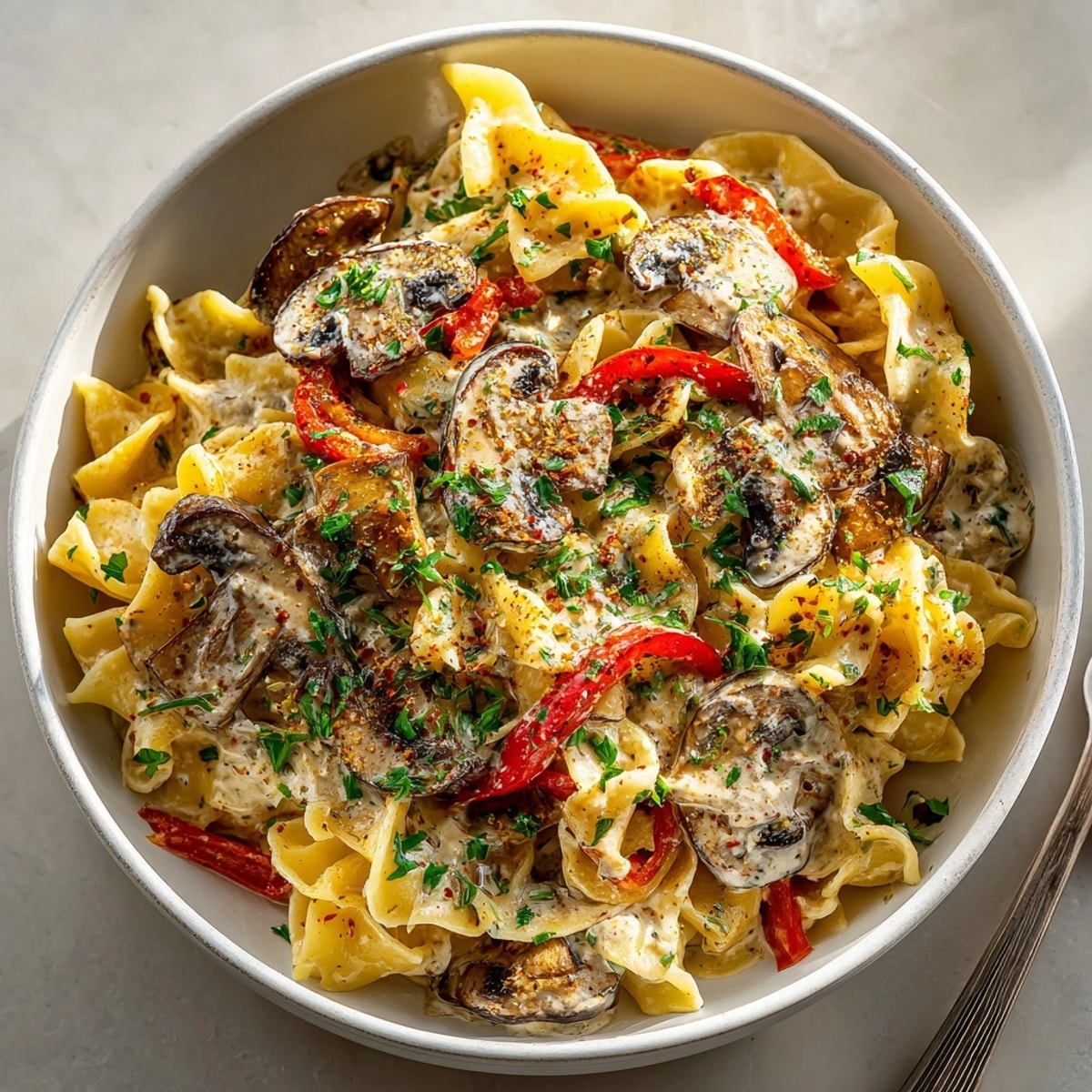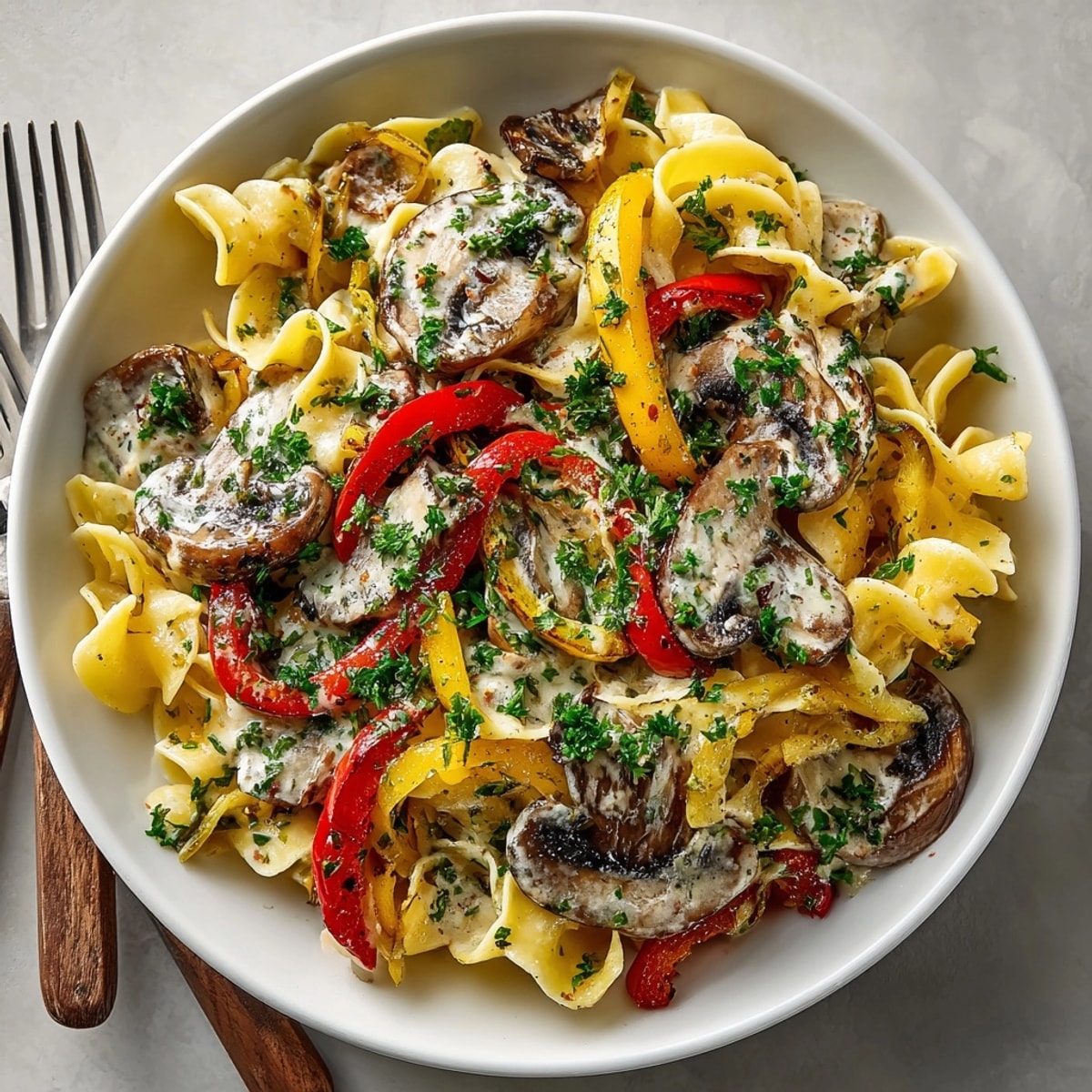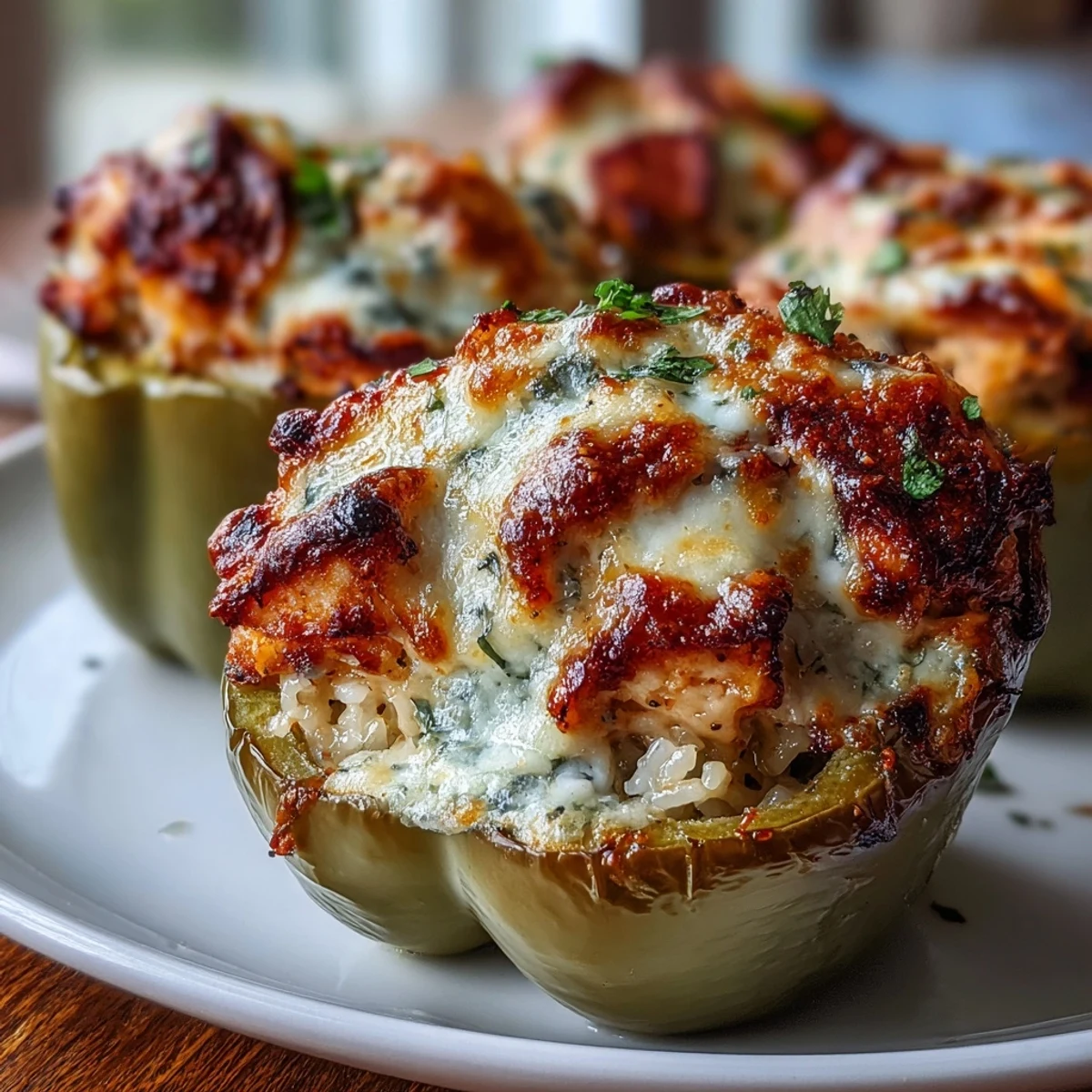 Save
Save This vegetarian portobello stroganoff transforms the classic Russian comfort food into a plant-based masterpiece without sacrificing any of the rich, savory flavors that make the original so beloved. The secret lies in the luxurious cashew cream that creates a silky texture you'd swear contained dairy, while meaty portobello mushrooms provide satisfying substance in every bite.
I first developed this recipe when my sister became vegan and missed her favorite comfort foods. After several attempts to recreate the creamy richness of traditional stroganoff, this cashew version became our new family favorite that everyone requests for special gatherings.
What's for Dinner Tonight? 🤔
Stop stressing. Get 10 fast recipes that actually work on busy nights.
Free. No spam. Just easy meals.
Ingredients
- Raw cashews: provide the creamy base for this dish. Look for whole unsalted cashews with a slight sheen indicating freshness.
- Portobello mushrooms: deliver meaty texture and rich umami flavor. Choose firm specimens with dry gills and no slimy spots.
- Smoked paprika: adds essential depth and subtle smokiness. Spanish varieties offer the most complex flavor profile.
- Dijon mustard: provides tanginess that cuts through the richness. A good quality mustard makes a noticeable difference.
- Tomato paste: concentrates umami and adds subtle sweetness. Look for paste in tubes for best flavor and easy storage.
- Vegetable broth: forms the liquid base. Use homemade or low sodium store bought for best flavor control.
- Soy sauce: enhances the savory qualities. Choose naturally brewed varieties for deeper flavor complexity.
- Wide pasta noodles: are traditional for stroganoff. Egg free varieties work perfectly for a vegan version.
Tired of Takeout? 🥡
Get 10 meals you can make faster than delivery arrives. Seriously.
One email. No spam. Unsubscribe anytime.
Instructions

- Prepare the cashew cream:
- Soak cashews for at least 2 hours or quick soak in hot water for 30 minutes. Blend with water, lemon juice, apple cider vinegar, and salt until completely smooth with no graininess. The texture should resemble heavy cream.
- Cook the pasta:
- Bring a large pot of salted water to a rolling boil before adding pasta. Cook until al dente, typically 1 minute less than package directions suggest for the perfect texture that will stand up to the sauce.
- Sauté the aromatics:
- Heat olive oil in a large skillet over medium heat until shimmering. Add sliced onions and cook for 3 to 4 minutes, stirring occasionally until they become translucent and start to soften.
- Build the vegetable base:
- Add minced garlic and sliced bell peppers to the onions, sautéing for another 2 minutes until fragrant but not browned. The peppers should retain some crispness.
- Cook the mushrooms:
- Add sliced portobello mushrooms to the skillet, increasing heat slightly to medium high. Cook for 6 to 8 minutes, stirring occasionally but not constantly to allow proper browning. The mushrooms will first release moisture then begin to brown as that moisture evaporates.
- Develop the flavor foundation:
- Add tomato paste, smoked paprika, dried thyme, and black pepper to the mushroom mixture. Cook for a full minute while stirring constantly to toast the spices and caramelize the tomato paste, which significantly deepens the flavor.
- Create the sauce base:
- Pour in soy sauce, vegetable broth, and Dijon mustard, stirring to incorporate all ingredients. Allow the mixture to come to a gentle simmer and cook for 5 minutes, letting the flavors meld and the sauce reduce slightly.
- Finish with cashew cream:
- Reduce heat to low and slowly stir in the prepared cashew cream. Simmer gently for 2 to 3 minutes until the sauce thickens to a rich, velvety consistency that coats the back of a spoon. Taste and adjust seasoning if needed.
- Serve immediately:
- Portion cooked pasta onto plates and top with generous ladles of the stroganoff. Garnish with fresh chopped parsley for color and a bright flavor contrast.
 Pin it
Pin it The smoked paprika is truly the unsung hero in this recipe. I discovered its transformative power years ago when trying to recreate the depth that traditionally comes from beef in classic stroganoff. Just that one ingredient bridges the flavor gap and creates an authentically satisfying experience that even dedicated meat eaters enjoy without feeling like they're eating a substitute.
Still Scrolling? You'll Love This 👇
Our best 20-minute dinners in one free pack — tried and tested by thousands.
Trusted by 10,000+ home cooks.
Perfect Soaking Methods
Achieving the perfect cashew cream requires proper soaking techniques. For best results, cover raw cashews with cold water and refrigerate for 4 to 8 hours or overnight. This slow soak gently softens the nuts for the smoothest possible cream. If you're short on time, pour boiling water over cashews and let sit for 30 minutes. The quickest method involves simmering cashews in water for 15 minutes, then draining and proceeding with the recipe. Each method works, but longer soaking times yield slightly creamier results.
Creative Variations
This stroganoff recipe welcomes personalization based on your preferences or what you have on hand. For an extra umami boost, add 1 tablespoon of nutritional yeast to the cashew cream. Wine lovers can deglaze the pan with 1/4 cup of dry white wine after cooking the mushrooms. For additional texture, incorporate 1 cup of fresh or frozen peas during the final 3 minutes of cooking. In fall, try adding 1 cup of roasted butternut squash cubes for sweet contrast. During summer months, stir in 2 tablespoons of fresh chopped dill just before serving for bright herbal notes.
Serving Suggestions
While traditional egg noodles make a classic base for this stroganoff, several alternatives work beautifully. Creamy polenta creates an Italian inspired variation that highlights the mushroom flavors. Fluffy mashed potatoes transform this into the ultimate comfort food experience. For a lighter option, serve over roasted spaghetti squash strands. The stroganoff also makes an excellent topping for baked potatoes or as filling for savory crepes. For a complete meal, serve alongside a crisp green salad dressed with a simple vinaigrette to balance the richness.
Historical Context

Traditional beef stroganoff originated in mid 19th century Russia, named after the influential Stroganov family. The dish typically featured sautéed beef pieces in a sour cream sauce. This vegetarian adaptation honors the creamy, savory profile while making it accessible to plant based eaters. The cashew cream technique draws inspiration from historical dairy alternatives developed by various cultures during times of scarcity. The addition of smoked paprika connects to Eastern European cooking traditions where smoke preserved foods through harsh winters. This modern interpretation represents how classic recipes evolve to accommodate changing dietary preferences while respecting culinary heritage.
 Pin it
Pin it This delightful vegetarian portobello stroganoff is a versatile dish perfect for weeknight dinners or elegant brunches. Enjoy this comforting and flavorful plant-based twist on a classic.
Frequently Asked Questions
- → What kind of pasta works best for portobello stroganoff?
Wide pasta noodles like fettuccine or tagliatelle are ideal, but rice or gluten-free pasta also work well.
- → Can I substitute other mushrooms for portobellos?
Yes, cremini or button mushrooms may be used partially or fully in place of portobellos for varied texture.
- → Is the cashew cream difficult to make?
Not at all. Blend soaked cashews with water, lemon juice, vinegar, and salt until smooth for a rich, creamy sauce base.
- → How do I make this meal gluten-free?
Use tamari instead of soy sauce and select gluten-free pasta or serve over rice to omit gluten sources.
- → What can I use instead of soy sauce?
Tamari is an excellent gluten-free alternative, and coconut aminos works if avoiding soy entirely.
- → How should leftovers be stored?
Keep in an airtight container in the refrigerator for up to three days; reheat gently before serving.


